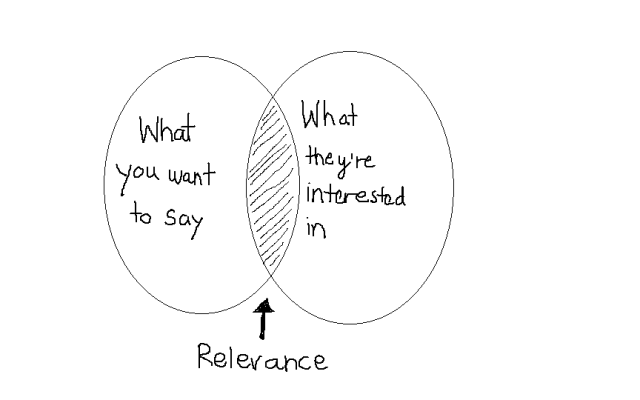Policy Lunchbox: Supporting academic-policy engagement
Posted on March 26, 2018 by Roya Ziaie
Sarah Chaytor, Director of Research Strategy and Policy at University College London Public Policy (UCLPP), spoke at our March Policy Lunchbox event about UCL’s initiatives to break down barriers between academia and policy. The Microbiology Society’s Policy Team, Roya Ziaie and Paul Richards, summarise Sarah’s key take-home messages for academics wanting to engage with policy-makers.

There are growing opportunities and demand for academics to use their research and in-depth knowledge to benefit society through increased engagement with Government, Parliament and the public. Microbiology Society members, for example, produce a wide range of research and innovation important for diverse public policy priorities including public health, agriculture, industry and the environment.
As Sarah observed, the growing focus on policy engagement is being driven by the Government, who increasingly recognise the importance of reliable evidence to enable effective policy development, and research funding incentives such as the Industrial Strategy and requirements to promote and demonstrate research impact.
Sarah emphasised it was for universities such as UCL to think about their roles, not just as knowledge holders, but as ‘brokers’ of that knowledge – supporting and facilitating academics to engage with policy-makers. This is key to UCL’s mission to be an accessible and publicly engaged organisation that uses the knowledge it generates to benefit society and to address grand challenges. Supporting academics to engage with policy-makers is also a key aspect of what the Microbiology Society, and other scientific organisations represented at the Policy Lunchbox event, do; through horizon scanning, responding to government consultations, and arranging policy workshops and events.
Overcoming obstacles
While academic research can provide an invaluable resource for policy-making, there are still barriers to overcome for effective engagement. A key obstacle highlighted by Sarah wastimescale. Research projects often run for years at a time, allowing exhaustive analysis and the garnering of a strong evidence base – something embedded in the priorities and culture of academic research. In contrast, policy decisions often need to be made rapidly and reactively, sometimes in a matter of weeks or even days. Policy-makers require evidence that is succinct and direct, and are usually only interested in the results of research. Research evidence is also just one factor policy-makers consider when developing policy. Social, political and economic considerations are also important, along with value judgements. Researchers engaging with policy-makers should be aware of this and how their research fits into the wider picture.
Facilitating academic-policy engagement
Paradoxically, Sarah’s ideal aim for the UCLPP initiative would be to embed academic-policy engagement so extensively that the initiative is no longer needed. UCLPP aims to increase the impact that UCL’s research has on policy by matching policy demand with the academic expertise of UCL’s 13,000 researchers, building networks and partnerships, promoting dialogue and public debate, and embedding the practice of responding to policy demand into UCL research activity.
Sarah highlighted various UCL initiatives to support academics to engage with policy needs, including reactive roundtable events and policy placements, which embed academics in government departments and other policy organisations where there is a need for their expertise. UCL also offer small grant schemes including Policy Challenge Awards, where UCL academics are invited to set out a proposal for responding to policy challenges, set by government partners. The scheme’s benefits are proving to be multi-faceted, with policy-makers having questions to real world problems addressed, and academics having a ready-made government team to engage with. One example is a recent challenge on ‘big data,’ which was set by the Department for Business, Energy and Industrial Strategy.
Offering training for academics is another focus of UCL Public Policy. Up Close and Policyoffers researchers the chance to hear from academics and policy-makers about their experiences with engagement, often highlighting that no two cases of policy engagement are the same. UCL has also recently collaborated with the Alliance for Useful Evidence to develop ‘Evidence into Policy’, a course designed to build on the scientific evidence base of what works for getting research heard by policy stakeholders.
UCL Public Policy have also helped researchers hone their writing skills for a policy audience through contributing to UCL Research Insights briefings on topical policy issues such as Brexit, climate change and industrial strategy and health.
Be persistent and target your audience
Sarah has been deeply impressed by the goodwill and appetite of UCL academics to engage with policy making. This is something we also see with our own members; the Microbiology Society and other organisations represented at the Policy Lunchbox also offer a wide range of opportunities and support for scientists to engage with policy-makers.
Sarah’s parting top tips for engaging with policy included presenting evidence in a concise, timely and accessible format for policy-makers to be able to make use of it. Perhaps most importantly, Sarah emphasised a need for persistence, as building networks and impacting policy development is often an iterative process. This means pursuing opportunities to participate in informing policy, engaging in dialogue and building relationships along the way.
If you want to catch up on this Policy Lunchbox event, you can watch it on the Biochemical Society’s Facebook Page.
Policy Lunchbox is a joint initiative between the Biochemical Society, the British Ecological Society, the Royal Society of Biology, Society for Applied Microbiology, Society of Experimental Biology and the Microbiology Society. You can sign up to the mailing list and receive invitations to events straight to your inbox.
